The Shibuya Urban Farming Project (SUFP) is a consortium that aims to create a new food culture through greening and farming in the city, and to form a community that is unique to Shibuya. Thinking about what we can do as city dwellers, we support the establishment and operation of farmland in Shibuya Ward, collaborate with local organizations to conduct food education activities, and hold events in which local residents can participate.
The consortium's kickoff meeting was held this time. Presentations and cross-talks were held on the background of the consortium's establishment, basic knowledge of "urban farming," and its impact on society.
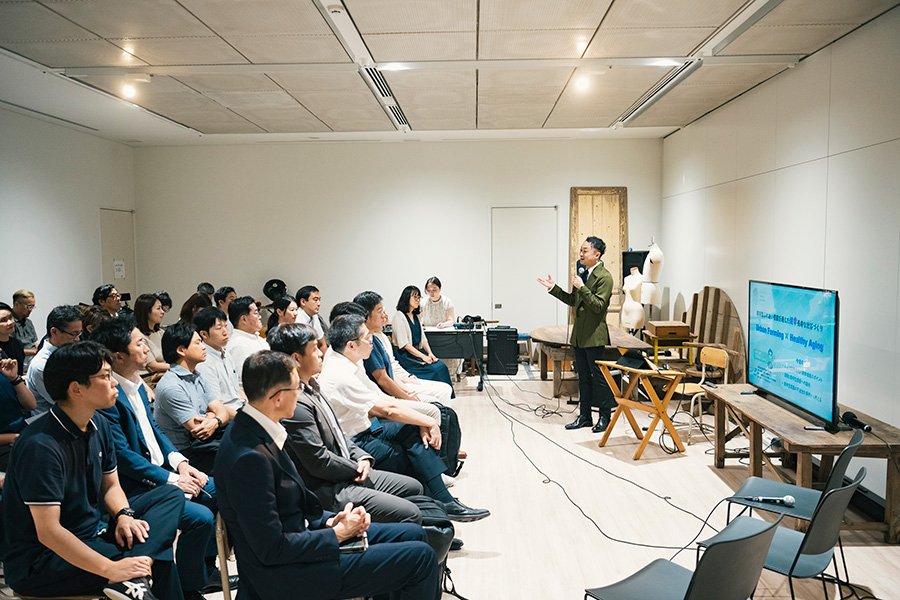
"SHIBUYA Urban Farming Project Kickoff Meeting"
August 21, 2024 @GAKU
<Speakers>
Tsuyoshi Hamakita (Kewpie Corporation, Corporate Management Headquarters, Sustainability Promotion Department)
Toyomi Kato (Environmental Team, Sustainability Promotion Department, Kewpie Corporation)
Tomonori Tanaka (Specially Appointed Assistant Professor, Graduate School of Engineering, The University of Tokyo)
Shinko Osada (Director and Secretary General Future Design Shibuya)
<Talk Session>
Takayoshi Serizawa (President and CEO of Plantio Co., Ltd.)
Satoshi Tsuzuki (Environmental Team, Sustainability Promotion Department, Kewpie Corporation)
Tomonori Tanaka (Specially Appointed Assistant Professor, Graduate School of Engineering, The University of Tokyo)
Shinko Osada (Director and Secretary General Future Design Shibuya)
"Urban farming" is a trend that has attracted attention worldwide, in which people grow, harvest, and eat vegetables in cities. It is said to have a positive impact on solving the world's problems of global warming, food waste, and food self-sufficiency, as well as biodiversity, well-being, and revitalizing local communities.
"SUFP" is sponsored by FDS and Kewpie Corporation, whose headquarters are in Shibuya. Aiming to co-create urban farming that is possible only in Shibuya, the two companies have been in discussion for more than half a year, leading to this kickoff. Osada of FDS and Mr. Kato of Kewpie shared their thoughts on the project as follows.
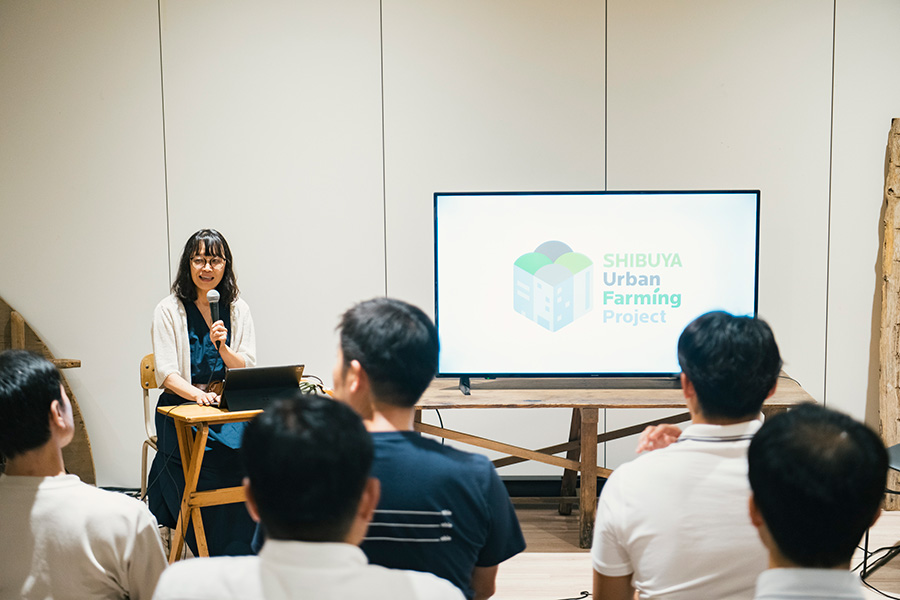
"We want to use this kickoff as a springboard to create a foundation for these activities this year. We will consider how to combine the assets and resources of various companies to create a food-centered community. We want to expand and establish our activities through four basic actions: promoting the farm, food education, holding study sessions, and holding events." (Osada)
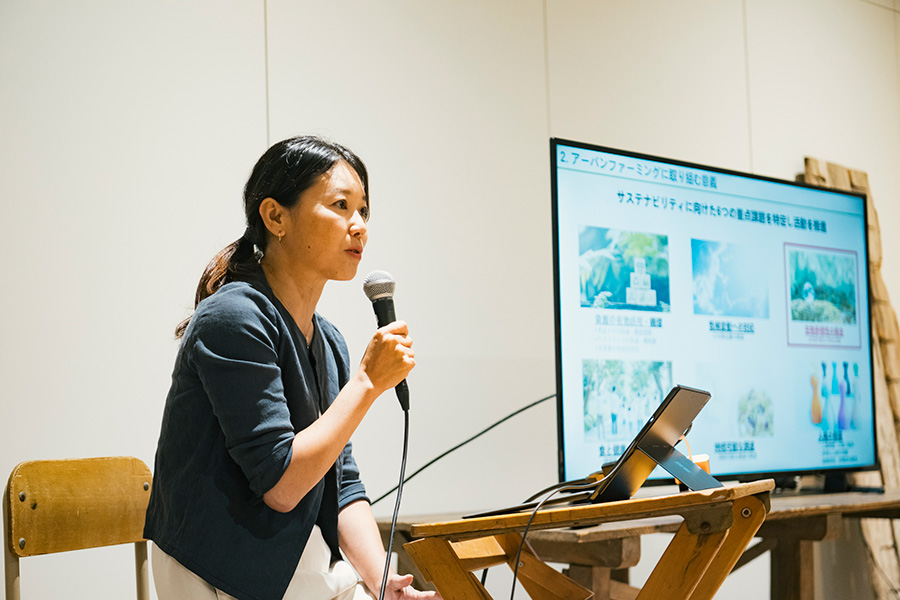
"Our company has been working on biodiversity conservation as a sustainable initiative for some time now (Kewpie Corporation, "Sustainability"). Kewpie will celebrate its 100th anniversary in 2019, and for the next 100 years, we want to engage in biodiversity activities that are even more closely related to our business." (Mr. Kato)
Then, Professor Tanaka of the University of Tokyo will explain the significance of urban farming in Shibuya from the perspective of health promotion. Professor Tanaka, an expert in geriatrics and health management, describes "health" as "good health" rather than "healthy" and has been researching for many years how to live a long and healthy life.
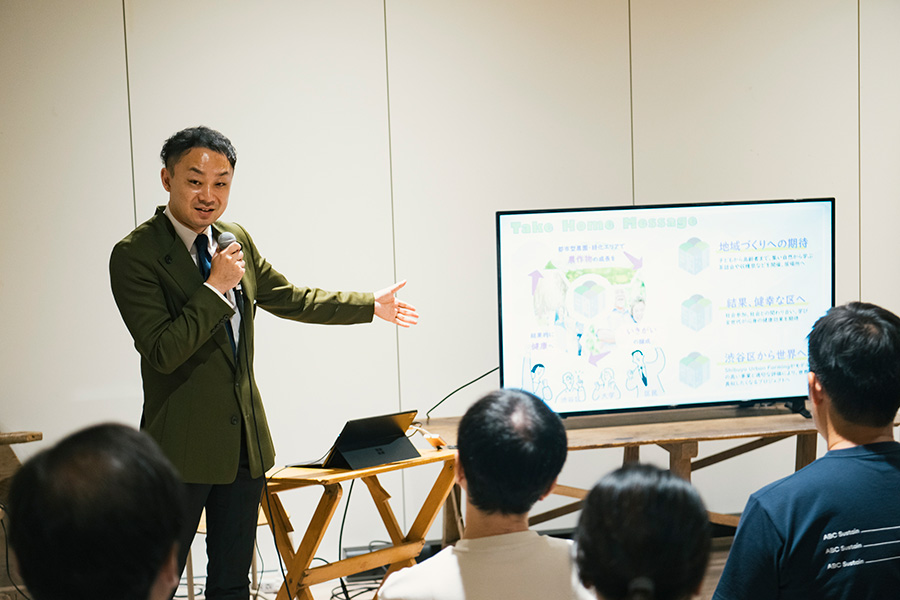
"Good health is not something you should think about when you become elderly. It is something you should do from childhood onwards, focusing on three areas: nutrition, physical activity, and social participation. It's good to get protein from meat and fish, and also eat lots of vegetables. It's good to train at the gym, but it's also important to be conscious of using the stairs, and to listen to this seminar standing up instead of sitting down (laughs). It's important to keep doing things like that." (Tanaka)
What is the relationship between urban farming and healthy aging in the era of 100-year lifespans? Tanaka continued by explaining the relationship with a focus on social participation.
"Through our many years of research, we have gradually come to understand the types of people who begin to decline. The most important factor is a decline in sociality. For example, in many cases, the cause is a situation in which a person falls and is unable to move, making them unable to participate in society, or not speaking to anyone for an entire day. Connections between people, society, and the community are extremely important. From the perspective of forming urban communities, I think urban farming is an extremely noteworthy activity." (Tanaka)
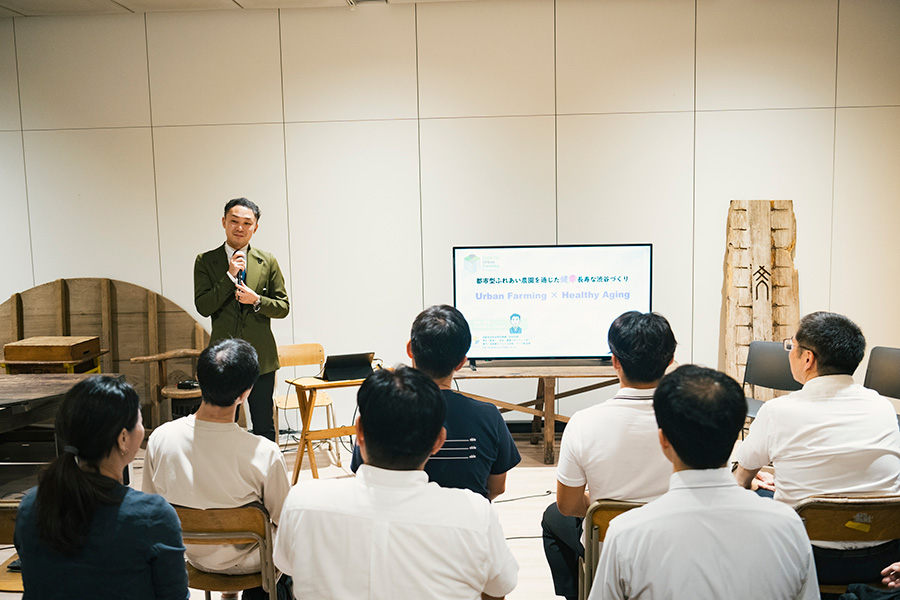
In Japan, where population decline and an aging population are inevitable, local communities in cities are also becoming weaker. The current situation is that elderly people living in urban areas often become isolated from their local communities, preventing them from achieving a healthy and enjoyable lifestyle, creating a vicious cycle.
Furthermore, Tanaka presented the results of a survey of data from over 100 local governments, which showed that, for example, elderly people who regularly participate in satoyama conservation activities tend to have a sense of purpose in life, a community, and stronger legs and hips. He reiterated that urban farming can be an activity that not only helps to solve the issues of global warming, food, and biodiversity, but also leads to well-being.
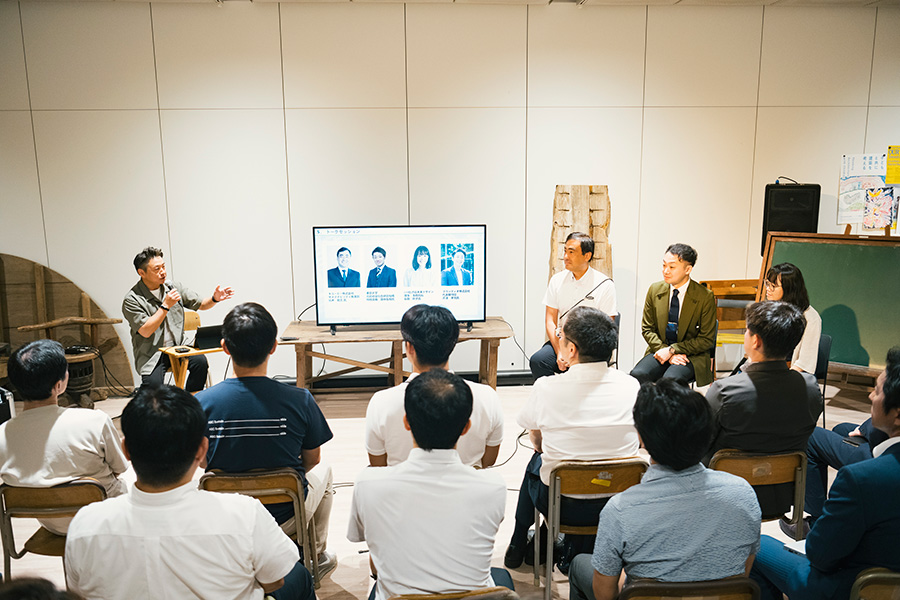
In the second half of the kickoff event, Mr. Serizawa from Plantio Co., Ltd. acted as facilitator, and Mr. Tsuzuki from Kewpie joined in a talk session with Mr. Tanaka from the University of Tokyo and Osada from FDS.
At the beginning, Serizawa explained that urban farming has five values: "regional revitalization," "food education," "biodiversity," "well-being," and "food self-sufficiency," and introduced the concept of "Farm to Table" as a global trend.
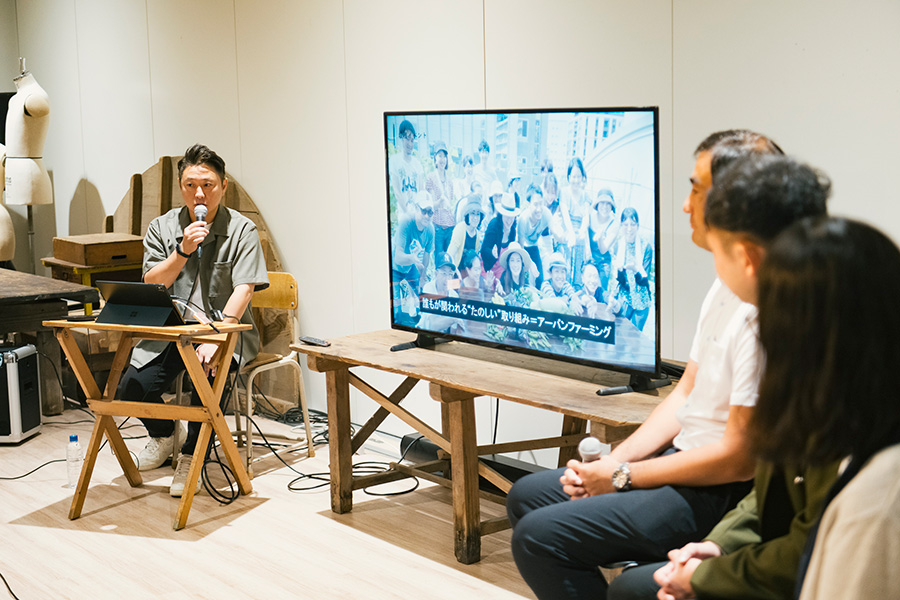
"Farm to Table" literally means "from the farm to the dining table" and is the idea of delivering ingredients directly from producers to consumers in order to realize local production for local consumption, and is now spreading around the world in the context of sustainability and ethics. In the near future, it may become a reality that it is normal to be able to eat vegetables grown in Shibuya at restaurants in Shibuya.
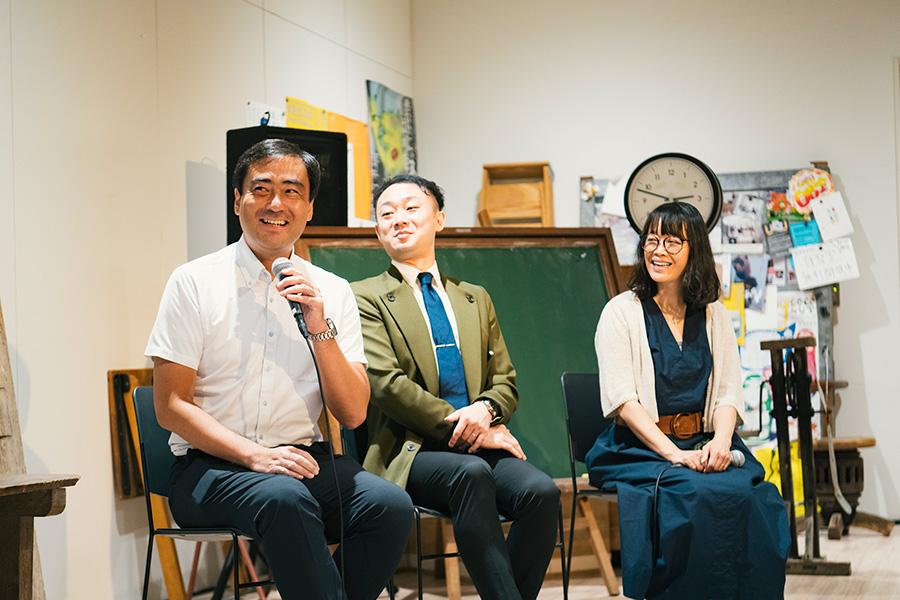
Tsuzuki also stated that urban farming is essential for the development of Kewpie's past "Shibusara" activities and its ongoing food education activities. As explained so far, urban farming is an activity that contributes to various social issues, so Osada spoke about his outlook for the future, saying that a mixed-up, anything-goes feel will be important.
During the question and answer session, many participants expressed their sympathy and expectations for the future, making it a symbolic scene befitting a kick-off meeting, demonstrating that the philosophy of "SUFP" had been properly conveyed to future co-creators.
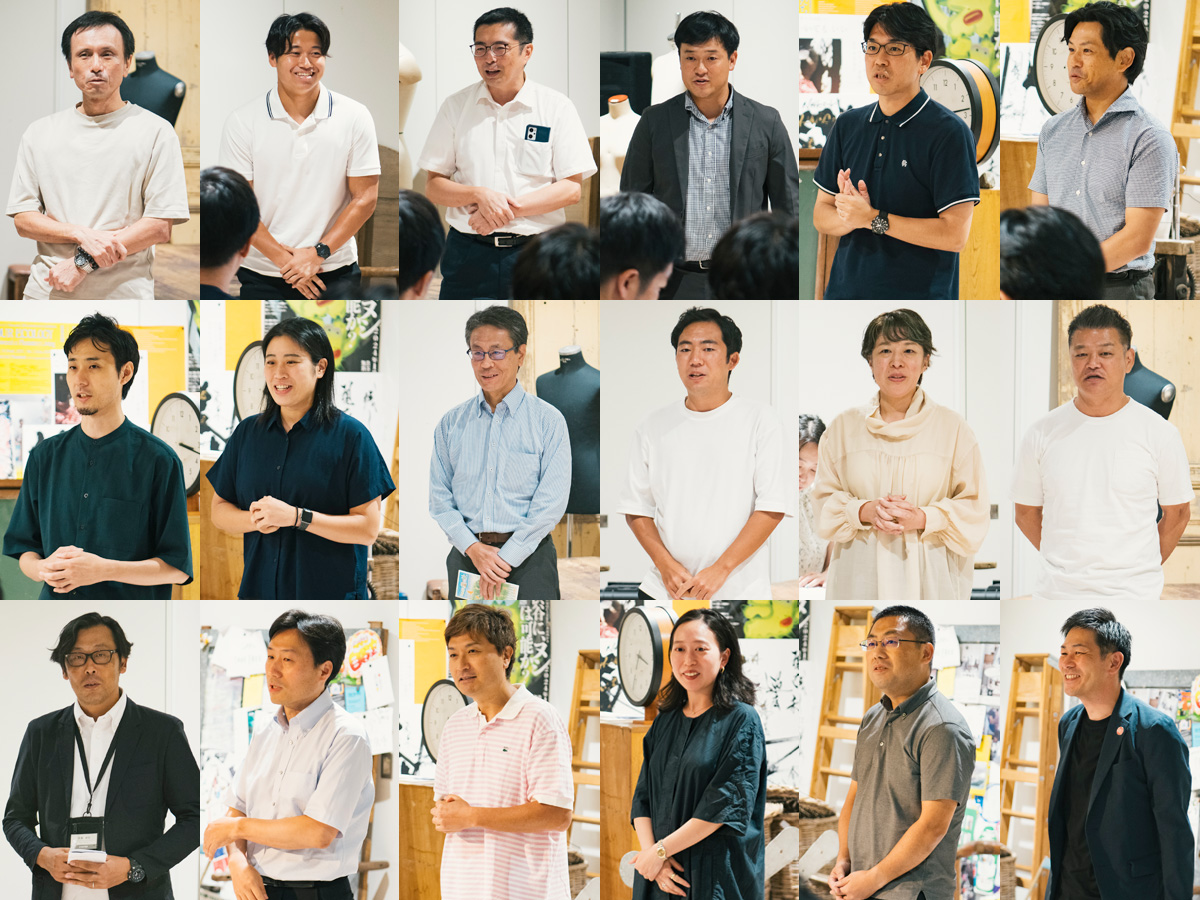
Urban agriculture has been on the rise in recent years, and while it has often been discussed in conjunction with greening plans and decarbonization, it can also be a clue to solving various social issues, such as biodiversity, food education, local communities, waste issues, and well-being. This kick-off event left many people with a renewed sense of the potential for the future. Please keep an eye on SUFP's future activities.
SHIBUYA Urban Farming Project
https://fds.or.jp/shibuya-urban-farming-project/


